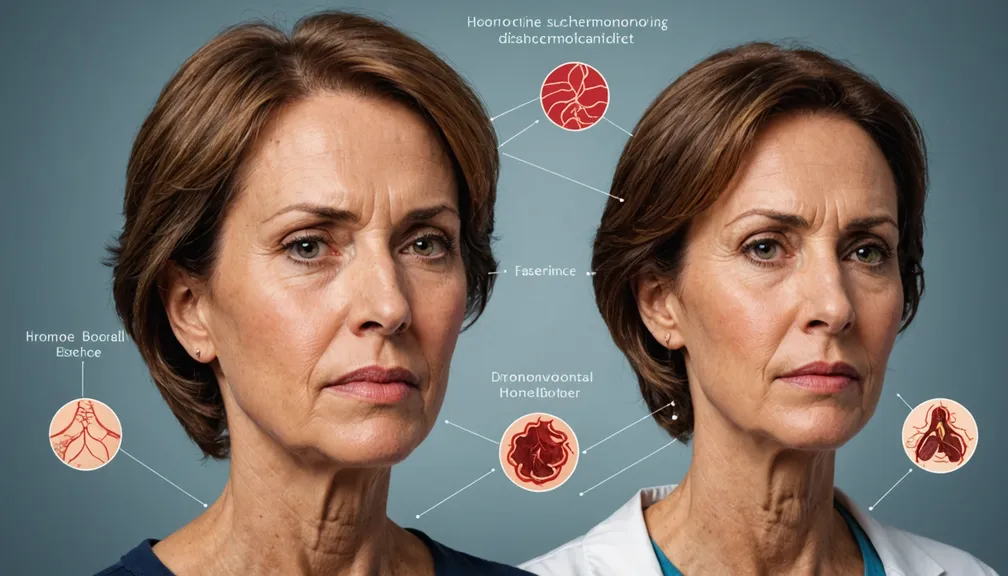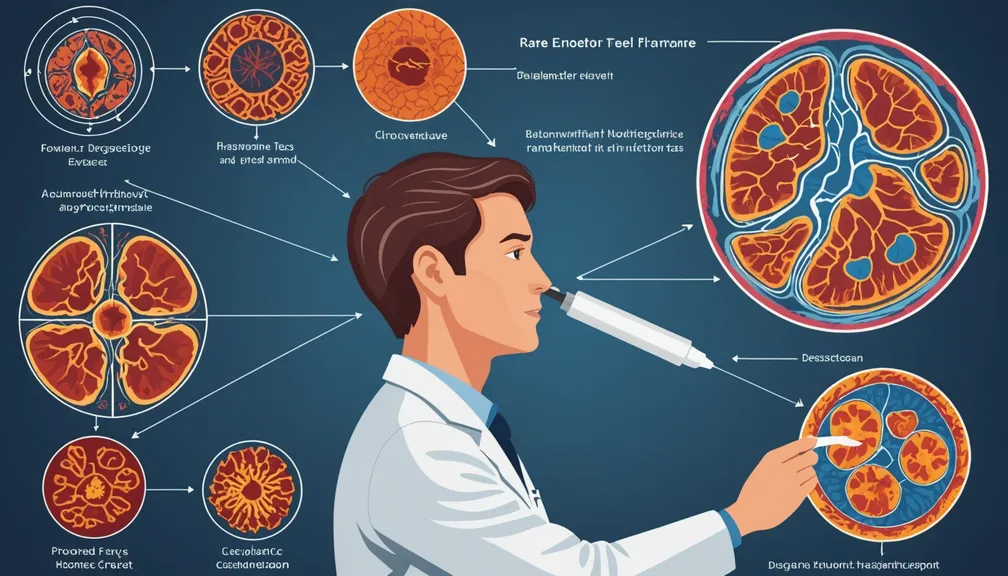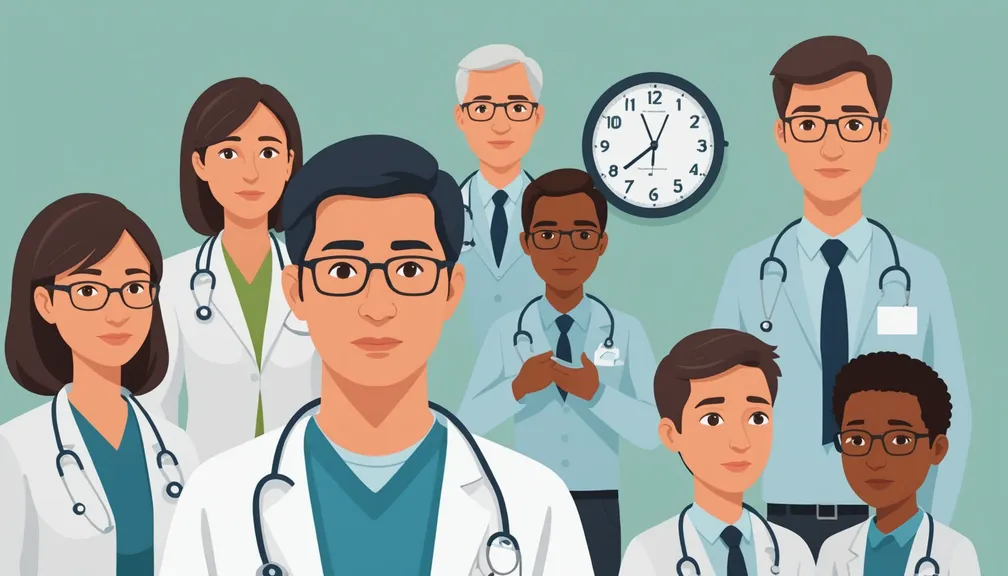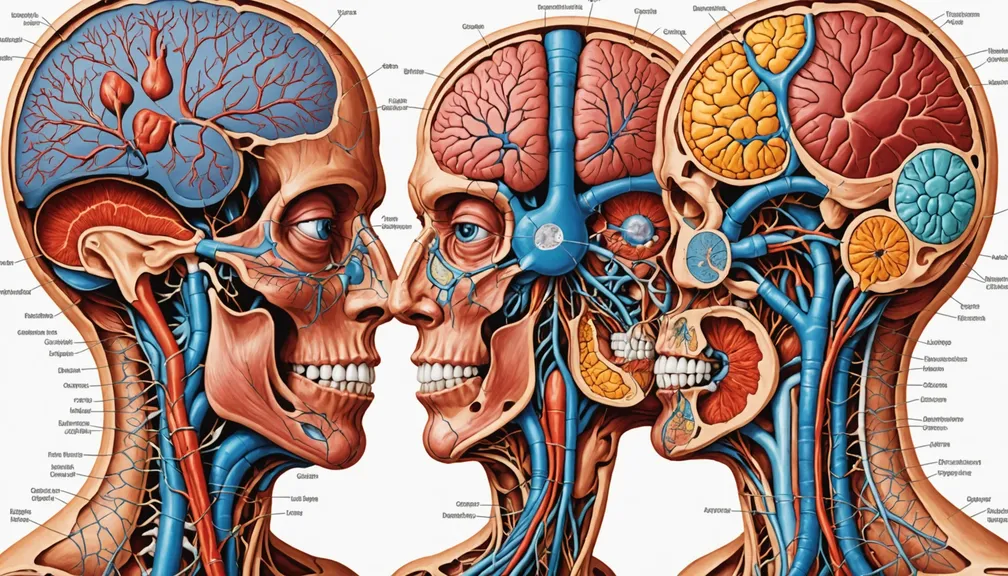Signs and Symptoms of Hormonal Disorders
Understanding the signs and symptoms of hormonal disorders is crucial for early detection and effective management. Hormonal imbalances can affect various aspects of your health, impacting multiple body systems. This lesson will help you recognize the common indicators of rare endocrine disorders and understand when to seek medical assistance.
1. Common Signs and Symptoms
Hormonal disorders can present a wide range of symptoms because hormones regulate many bodily functions. Some common signs to watch for include:
- Unexplained Weight Changes
-
Weight Gain or Loss: Sudden changes in weight without altering diet or exercise routines.
-
Fatigue and Weakness
-
Persistent Tiredness: Feeling exhausted despite adequate rest.
-
Mood Swings and Mental Health Issues
- Depression or Anxiety: Increased feelings of sadness or nervousness.
-
Irritability: Unusual bouts of anger or frustration.
-
Changes in Skin and Hair
- Skin Darkening or Lightening: Unexplained changes in skin color.
-
Hair Thinning or Loss: Significant hair loss or thinning.
-
Digestive Problems
-
Nausea or Vomiting: Frequent stomach upset without clear cause.
-
Irregular Menstrual Cycles
- Menstrual Changes: Irregular periods, heavy bleeding, or missed cycles.
2. Symptoms Based on Specific Endocrine Glands
Different glands produce specific hormones, and disorders can lead to symptoms related to the affected gland:
a. Adrenal Glands
- Addison’s Disease
- Chronic Fatigue
- Muscle Weakness
- Low Blood Pressure
- Salt Cravings
b. Thyroid Gland
- Hypothyroidism (Underactive Thyroid)
- Cold Sensitivity
-
Slow Heart Rate
-
Hyperthyroidism (Overactive Thyroid)
- Rapid Heartbeat
- Weight Loss
c. Pancreas
- Rare Forms of Diabetes
- Excessive Thirst
- Frequent Urination
d. Pituitary Gland
- Multiple Endocrine Neoplasia
- Headaches
-
Vision Problems
-
Growth Disorders
- Unusual Growth Patterns in Children
3. When to Seek Medical Help
If you experience any of the following, it's important to consult a healthcare professional:
- Persistent or Severe Symptoms: Ongoing fatigue, significant weight changes, or severe mood swings.
- Multiple Symptoms Together: Experiencing multiple signs simultaneously may indicate a hormonal imbalance.
- Family History: If rare endocrine disorders run in your family, increased vigilance is necessary.
- Unexplained Health Issues: Symptoms that cannot be attributed to another medical condition.
4. Diagnostic Procedures
Diagnosing hormonal disorders typically involves a combination of the following:
- Medical History and Physical Examination
-
Discussing symptoms, family history, and performing a thorough physical check.
-
Blood Tests
-
Measuring hormone levels to identify imbalances.
-
Imaging Studies
-
CT Scans or MRI: To visualize endocrine glands and detect abnormalities.
-
Biopsy
- Examining tissue samples if tumors are suspected.
5. Treatment and Management
Managing hormonal disorders often requires a multifaceted approach:
- Medication
-
Hormone replacement therapies or medications to regulate hormone levels.
-
Surgery
-
Removing tumors or affected glands when necessary.
-
Lifestyle Modifications
- Diet and Exercise: Tailored plans to maintain a healthy weight and energy levels.
-
Stress Management: Techniques such as meditation or counseling to manage mood-related symptoms.
-
Regular Monitoring
- Ongoing blood tests and check-ups to adjust treatment as needed.
6. Living with a Hormonal Disorder
Managing a hormonal disorder involves both medical treatment and personal strategies:
- Education
-
Understanding your condition to make informed decisions about your health.
-
Support Systems
- Family and Friends: Building a support network for emotional assistance.
-
Support Groups: Connecting with others who have similar experiences.
-
Healthy Lifestyle Choices
- Balanced Diet: Eating nutritious foods to support hormone health.
- Regular Exercise: Maintaining physical activity to boost overall well-being.
7. Healthcare Professionals Who Can Help
Several specialists can assist in the diagnosis and management of rare endocrine disorders:
- Endocrinologists
-
Experts in hormone-related conditions and can provide comprehensive care.
-
Primary Care Physicians
-
Often the first point of contact and can refer you to specialists as needed.
-
Surgeons
-
For surgical interventions such as tumor removal.
-
Psychologists or Psychiatrists
-
To help manage mood swings and mental health issues related to hormonal imbalances.
-
Dietitians
- To create personalized nutrition plans that support hormone health.
By recognizing the signs and symptoms of hormonal disorders and seeking appropriate medical care, you can effectively manage these rare endocrine conditions and maintain a better quality of life.






